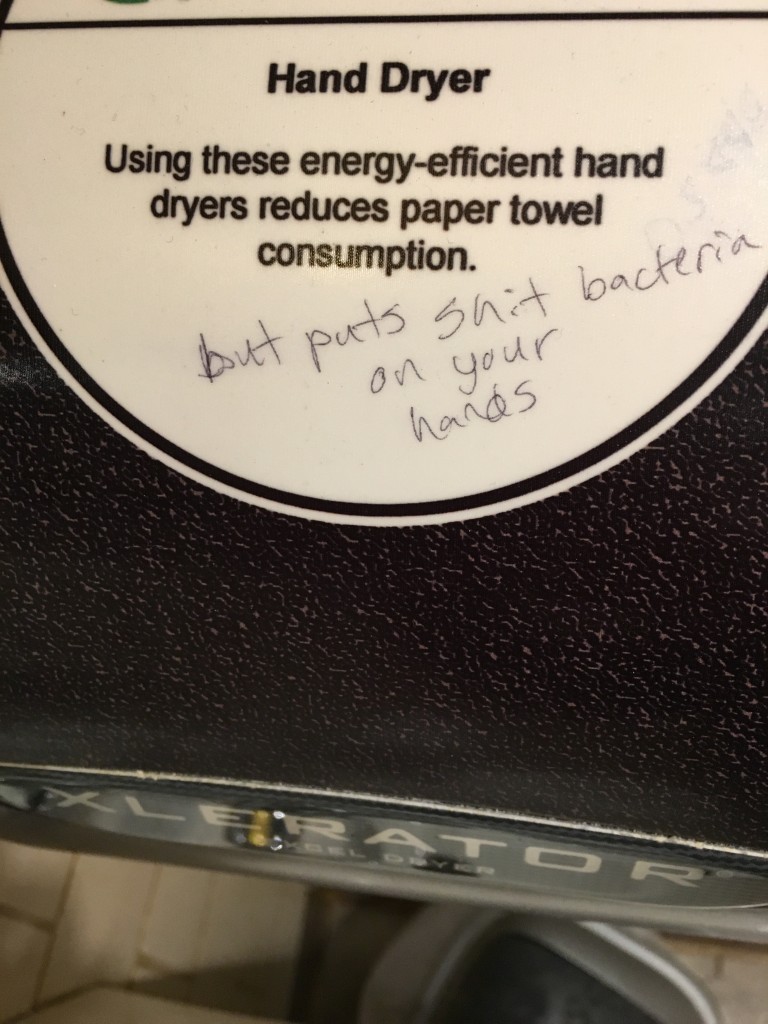I snapped this pic today (below, exactly as shown). 
I don’t like blow dryers because the literature shows they accumulate microorganisms from toilet aerosols, and can cause contamination of hands as they are dried by the dryer (Coates et al., 1987; Knights, et al., 1993; Redway,et al., 1994). In 2010, Anna Snelling and colleagues at the University of Bradford (UK) also showed that drying with a blow dryer can recontaminate hands and rubbing with paper towel was the most effective method to reduce pathogens.
Handwashing and food service food safety guru Pete Snyder at the St. Paul-based Hospitality Institute of Technology and Management summarized key aspects of handwashing and drying . Pete says that after hands are washed and rinsed, they must be thoroughly dried and cites data that shows 1-2 log reduction of pathogens from drying. Water and soap loosen the attachment of pathogen to hands. A rinse step dilutes what has been loosened but drying (and the friction associated) is the next step that matters – and the bugs have to go somewhere; I’d rather have paper towel instead of shit bacteria blown all over my pants.
Coates, D., D. N. Hutchinson, and F. J. Bolton. 1987. Survival of thermophilic campylobacter on fingertips and their elimination by washing and disinfection. Epidem. Inf. 99:265-274.
Knights, B., C. Evans, S. Barrass, and B. McHardy. 1993. Hand drying – A survey of efficiency and hygiene. The Applied Ecology Research Group, University of Westminster. London, UK.
Redway, K., B. Knights, Z. Bozoky, A. Theobald, and S.Hardcastle. 1994. Hand drying: A study of bacterial types associated with different hand drying methods and with hot air dryers. Applied Ecology Research Group, University of Westminster. London, UK. 14. Brodie, J. 1965. Hand hygiene. Scot. Med. J. 10:1:115-125.
